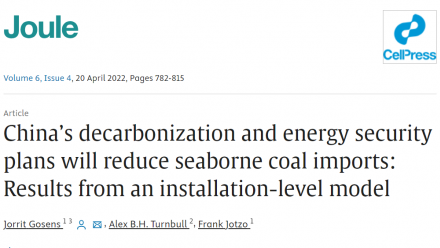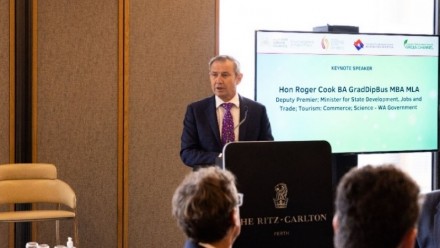Australia-China links on low-carbon technology transitions
Project overview
This project is funded by the National Foundation for Australia-China relations to facilitate cooperation on low-carbon technology transitions between Australia and China. The project links Australian and Chinese economies for potential leveraging of Australian natural resource endowments and opportunities for economic diversification.
Academic analysis led by Dr Jorrit Gosens, Prof. Frank Jotzo, and Associate Prof. Llewelyn Hughes, of ANU Crawford School and the ANU Institute for Climate Energy & Disaster Solutions, together with partners in China and in Australia, focus on eight central tracks to the Australia-China relationship in energy and decarbonisation:
- Steel supply chains and the transition to green steel.
- Trade in energy.
- Hydrogen production and systems.
- Next-generation low-carbon technologies.
- Frameworks for innovation, investment and trade.
- Decarbonisation of hard to abate industries.
- Carbon markets and CCUS.
- Critical minerals for decarbonisation.
The Australia-China decarbonisation roundtables
A series of ‘Australia-China decarbonisation roundtables’ provide engagement with stakeholders in business, government, and the general public under this project, together with a series of policy briefs that are provided to attendees prior to each roundtable. The roundtables are co-organised with the Australia China Business Council.
The first roundtable (March 2022, Melbourne) addressed China’s decarbonisation plans and their relevance for Australia, including Implications for commodity trade. The panel included speakers from Rio Tinto, BHP, KPMG, Tsinghua University, The Energy Foundation China, and the ANU.
The second roundtable (August 2022, Perth) focused on industries most relevant to Western Australia-China links: green steel, hydrogen, and battery minerals. The roundtable was opened with a keynote by the Western Australia Deputy Premier Hon. Roger Hugh Cook MLA. Panel members include industry speakers from Rio Tinto, Fortescue, Sinosteel, Tianqi Lithium, and others, and academic speakers from the Beijing Institute of Technology and the ANU.
The third roundtable (November 2022, Brisbane) featured a panel including speakers from Tsinghua, ANU, QUT, the Queensland departments of Energy and Public Works & Environment and Science, and The Next Economy, addressing topics on Hydrogen in Energy Intensive industries, and Economic Diversification.
The fourth roundtable (April 2023, Adelaide) focused on hydrogen & ammonia, renewables, batteries & grid integration, and critical minerals and minerals processing.
The fifth roundtable (August 2023, Perth) hosted leading industry and academic experts whose discussion will focus on Green Steel, Green Hydrogen and Critical Minerals & Downstream Processing.
Planning is underway for our next Roundtable, to be held in Beijing, collaboratively with Tsinghua University, tentatively for late April 2024. Follow the Twitter channel of the ANU Institute for Climate, Energy & Disaster Solutions for updates, or get in touch with Dr Jorrit Gosens.
Outputs resulting from the project
Research publications
Gosens, J., & Turnbull, A. B. (2022). A protocol to determine the least cost supply of coal to China with an installation-level optimization model. STAR protocols, 3(4), 101873.
Gosens, J., Turnbull, A. B., & Jotzo, F. (2022). China’s decarbonization and energy security plans will reduce seaborne coal imports: Results from an installation level model. Joule, 6(4), 782-815.
Gosens, J., Turnbull, A. B., & Jotzo, F. (2022). The installation level China Coal Model IL-CCM. Zenodo repository. https://zenodo.org/record/6893093

A summary of scenarios from the article in Joule, that identifies how Australian exports of coal to China are set to fall over the next few years.

A visualization of coal flows in China, from our geographically highly granular model results published in Joule.
Opeds




















